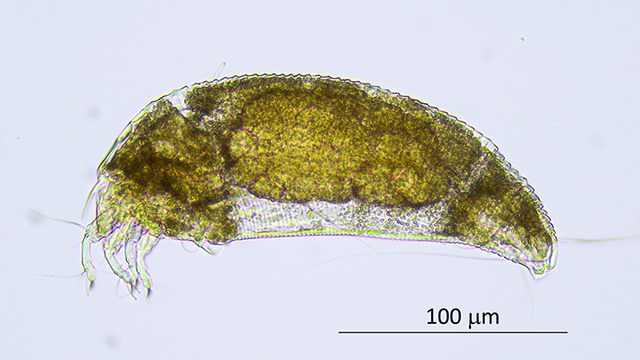A New Mite in France in the Pipeline for Fighting Tree-of-Heaven

European Biological Control Laboratory (EBCL) researchers recently discovered an eriophyid mite species, Aculus mosoniensis, in several localities in France. This species is negatively impacting the growth of juvenile tree-of-heaven plants when present in large numbers.
Partnering with the Biotechnology and Biological Control Agency (BBCA) in Italy, the University of Belgrade and the Institute of Plant Protection and Environment of Belgrade in Serbia, EBCL researchers confirmed that the French populations of this mite are genetically similar to the Italian population of eriophyid mites currently under testing at the BBCA facilities in Rome. This discovery allows, for a maximum of reliability, scientists in France and Italy to replicate evaluation tests of this agent as a potential biological control candidate for management of tree-of-heaven in Europe and the United States.
To read the full study, click here.
Authors: Marie-Claude Bon and Javid Kashefi
Contact: Michael Grodowitz
The European Biological Control Laboratory (EBCL) was established in 1991 near Montpellier, France. EBCL was created by the merger of the former European Parasite Laboratory, established in Paris in 1919, and the Biological Control of Weeds Laboratory in Rome. EBCL has a satellite laboratory in Thessaloniki, Greece. As the only USDA ARS-operated laboratory outside the United States, EBCL develops biological control technologies which can be used to suppress invading weeds and insect pests of Eurasian origin. EBCL researchers do this by searching for natural enemies (insects, mites, and pathogens) in their native habitat, determining their identity, testing their host specificity and potential impact in laboratory and field experiments, and shipping promising organisms to the U.S. for further testing as biological control agents. EBCL collaborates with scientists in many countries in Europe, Asia, and Africa to explore in regions of origin of the target weeds and insects.
